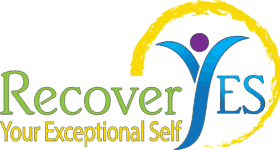When most people consider computer addiction, they assume the discussion will focus on video games. And, while video game addiction is a serious cause for concern, another type of addiction that is the result of increased dependence on computers is related to social media. Facebook addiction is not a laughing matter as you’ll soon come to learn from a German addiction study.
Using social media, especially Facebook, allows us to feel connected to people that we might not otherwise be close to. In fact, attendance at high school and college reunions has significantly decreased. Apparently, people don’t feel like attending a reunion is the only way they can catch up with people they haven’t seen in many years. Rather, they connect with those people regularly through social media.

But, this can be a double-edged sword. Have you ever felt jealous of someone after reading their Facebook or Twitter post? If so, you’re not alone.
Facebook Can Lead to Computer Addiction
The recent German study is not the first to study the social effects of Facebook. In fact, a study published in December 2012 found the more time college students spent on Facebook, the worse they felt about their own lives. Some may argue that Facebook is efficient in disbursing virtual empathy since people feel good when a lot of people wish them on their birthday. The reality of course, is that the numbers game of likes is creating a compulsion or addiction.
Facebook is an addiction when one finds constant pleasure from the experience. Facebook is a compulsion if it creates an anxiety when one is not online. It would be interesting to evaluate through a functional MRI if there are new parts of the brain that light up as we get more likes and acceptance on Facebook and whether they are the same areas that light up when we satisfy our craving for food, sex or drugs.
So, if you’re using social media to live vicariously through your Facebook friends or Twitter follows, you might want to give it some additional awareness. Are you feeling anxious if you haven’t checked in on social media several times in a day? Do you regularly feel sad, lonely, or angry as a result of reading a post? Even if you’re counting on a social media “fix” to feel happy, it’s cause for concern! You could be at risk for developing computer addiction.
How many times do you check Facebook, Twitter or other social media outlets in a day? What feeling do you typically experience when you read or create posts? Please comment below. And, like or share this post if you think others might benefit from it.
